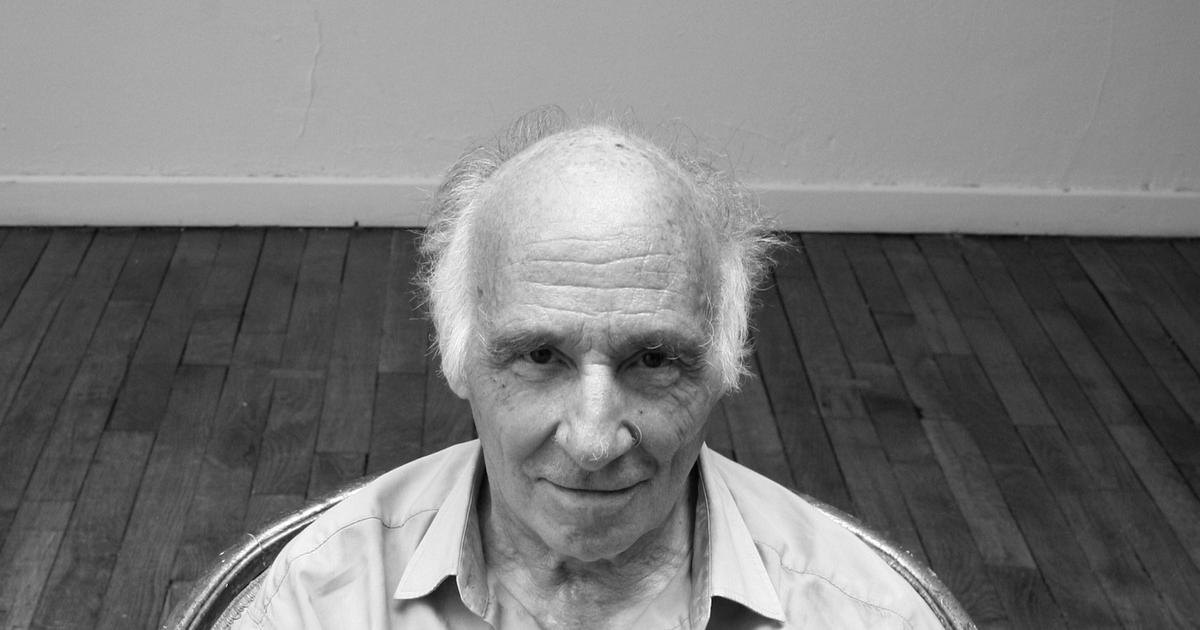DISAPPEARANCE – The author died Thursday morning at the age of 92, the Gallimard publishing house announced. Winner of the Goncourt for poetry in 2021, he leaves behind a rich and unique body of work, distributed throughout the world.
“87 years fade away / unclear / my years waver”, he confided in his last major collection, published in 2021, Falls, bounces and other simple poems. Jacques Roubaud, who saw in poetry « the tongue of the tongue », passed away on Thursday December 5, his 92nd birthday, joining the other great pedestrian of Paris, Jacques Réda, who died two months ago. Author of a prolific and singular work, combining poetry, essay, translation, prose, books for young people, work crowned by the French Academy in 2008 with the Paul-Morand Grand Prize for Literature, and rewarded with the Goncourt for poetry in 2021, Roubaud had two cardinal passions: mathematics (which he taught) and the troubadours, singers of end love
Born on December 5, 1932 in Caluire (Rhône), the town where Jean Moulin was arrested in 1943, having grown up in Carcassonne, this son of a teacher published his first collection at the age of 12 and was noticed by Aragon, who encouraged him. Arriving in Paris, studying hypokhâgne, passionate about fixed poetic forms (sonnet, renga…), with a degree in English, he suddenly changed direction and turned towards mathematics. In 1966, he joined OULIPO (Ouvroir de literaturepotential), a research group in experimental literature, on the advice of his friend Raymond Queneau, who published his first collection with Gallimard, ∈followed by Thirty-one cubed. In the meantime, he published a vast anthology of troubadour poetry with Seghers, before working on The Old Age of Alexander. Essay on some recent states of French versenow considered a classic.
Rarely has an author joined forces so closely with his peers to compose works with four or even six hands. With his friend Georges Perec, he wrote a Small treatise inviting you to discover the subtle art of go then teamed up with the Mexican Octavio Paz, Edoardo Sanguineti and Charles Tomlinson to compose Renga. Then comes the collaboration with Florence Delay for an Arthurian cycle in prose, Grail Theaterwhere we find Lancelot, Merlin, Percival and Morgan. In 1990, he participated in a sextet of authors to offer us The Hexameron (Michel Chaillou, Michel Deguy, Florence Delay, Natacha Michel and the poet Denis Roche, founder of the “Fiction & Cie” collection).
Subsequently he undertook a vast romantic project, in the form of a triptych, with Beautiful Hortense, The Abduction of Hortense et Hortense’s Exilecompleted in 1990. At the same time, Roubaud had undertaken an even more ambitious project, of autobiographical inspiration: The Great Fire of Londoncomposed of five volumes, collected in 2009, and comprising some 2000 pages.
Poetic tomb
Previously, Roubaud had lost his companion, the photographer and diarist Alix Cléo, who died at the age of 31, in 1983. She had inspired him to create his most beautiful collection in the form of a poetic tomb, and one of the most important of the late 20th century.e century : Something black, where we could read, in 1986: « In the light. I noticed your unreality. she emitted monsters. and absence. »
Another collection by Roubaud which will remain in the memories, his vibrant and Baudelairian anthem to Paris: The shape of a city changes faster, alas, than the hearts of humanspublished in 1999, where we find this diversion of a quatrain by Queneau: “The Paris where we walk / Is not the one where we walked / And we advance without flame / Towards the one we will leave”.
Lucid, Roubaud was worried about threats to poetry, a supreme genre increasingly neglected. “The fall of poetry,” he wrote, “threatens everyone in their memory, threatens their ability to be free (…). Poetry gives someone, like no other activity in my opinion, the memory of their own language.”
Sentimental registration
Paris will inspire another collection, very singular: Ode to line 29 of Parisian buses, where he led us from the Saint-Lazare station to the Montempoivre gate, through a superb sentimental land register. We met him on the occasion of its publication, in 2012. The meeting place: a brasserie a stone’s throw from rue d’Amsterdam, where he had lived for decades. He told us, when he had reconnected with rhyme (like Jacques Réda), long reviled by the avant-gardes: “Today, the need for rhyme is strongly felt, that is obvious, even though it was condemned more than a century ago. Look what’s happening with rap or slam. The poets return there, no doubt tired of the formalists, the performers, of those who do regurgitated Dada, in short all this “poetic vroom-vroom”. Rhyme sounds. It is not just an old recipe from the past. Poetry contains the future of language, so threatened today. The poet must be the guardian of his language.”
Already, at the time, his work received less attention, as if it had been shelved, neglected. Which is just injustice. In 2018, fourteen years later Churchill 40 and other travel sonnetsRoubaud had published his most sensitive and perhaps most accomplished book in Le Seuil, a form of fragmented, intimate self-portrait, under the title Maybe or Sunday Night. It read on page 177: “Let the world go as it goes; and don’t go.”
